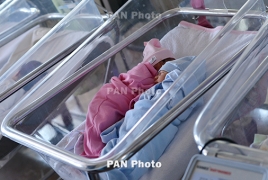
A potential route to reducing brain injury in premature babies has been found, say researchers who have discovered a way to tackle overactive immune cells in the brain, The Guardian reports.
Microglia are a type of immune cell that play an important part in the building of a baby’s brain. However, if these cells go into overdrive as a result of inflammation – often because of a bacterial infection of the foetal membranes, a maternal infection or even sepsis after delivery of the baby – they can cause harm to the child’s brain. In particular, they can damage white matter, reducing the degree to which neurons are insulated and thereby affecting connectivity in the brain.
It is thought that of the 15 million infants born before 37 weeks every year, up to 9 million are left with lifelong harm to the brain, sometimes resulting in conditions such as epilepsy or cerebral palsy.
Now researchers say they have found a signalling pathway in these immune cells that is behind their transformation.
“We have actually identified the immune switch that turns these immune cells in the developing brain from being helpful in building a brain and taking care of the brain to causing damage,” said Dr Bobbi Fleiss from RMIT University in Melbourne, Australia, a co-author of the study.
What is more, the researchers say, it might even be possible to intervene and turn rogue microglia back into helpful workhorses.
Writing in the journal Brain, Fleiss and colleagues reported how they took mouse pups just after birth and injected them with proteins that mimic an infection in the mother or foetus, inducing the transformation of microglia from helpful to harmful. The team said mice of this age were comparable in their development to a human pregnancy of 22 to 32 weeks.
The team then found that if they selectively killed off these microglia, the mice ended up with less of a reduction in the insulation of their neurons. That, they said, backed up the idea that overactive microglia were involved in brain injury.
They then looked at which genes were switched on or off when the mouse was exposed to the inflammation-causing proteins, and identified a signalling pathway known as Wnt that appeared to be involved in the microglia going into “overdrive”.

